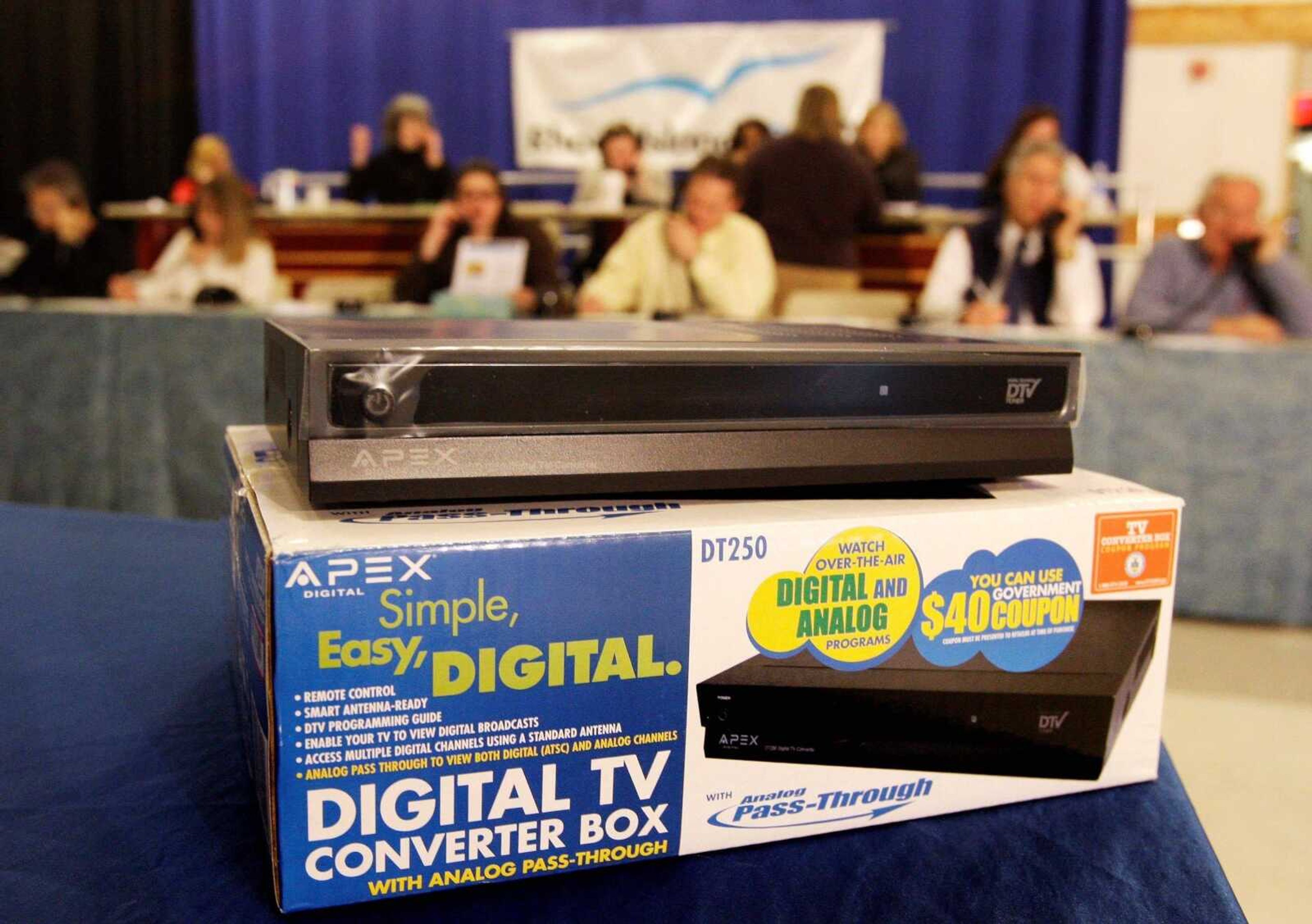Hundreds of TV stations cut analog feed at old deadline
NEW YORK -- About a quarter of the nation's TV stations cut off their analog signals Tuesday, causing sets to go dark in households that were not prepared for digital television despite two years of warnings about the transition. Though most viewers were ready -- and people with cable or satellite service were unaffected -- some stations and call centers reported a steady stream of questions from callers. ...
NEW YORK -- About a quarter of the nation's TV stations cut off their analog signals Tuesday, causing sets to go dark in households that were not prepared for digital television despite two years of warnings about the transition.
Though most viewers were ready -- and people with cable or satellite service were unaffected -- some stations and call centers reported a steady stream of questions from callers. Many wanted to know how to get coupons for converter boxes that translate digital signals for older TVs or how to get the devices working.
"It's kind of an irritation, but I understand that everyone will have a much better picture. As far as I was concerned, they could have left things the way they were," said Dorothy Delegard, 67, of Minneapolis, who bought a converter box because a friend gave her a coupon that expires Tuesday.
Phones were ringing off the hook at a walk-in information center set up by stations in Providence, R.I.
A volunteer at the center, Jeremy Taylor, said he tried to calm agitated callers and explain the reasons for the disappearance of analog signals, which have remained largely unchanged since the 1950s.
"I try to explain that the digital switch is not something we're doing to extort them of money," Taylor said.
The federal government mandated the end of analog broadcasts to make room on those frequencies for wireless Internet service, emergency radio traffic and other uses. Digital TV broadcasts, which began several years ago, take up much less of the wireless spectrum.
Originally, all U.S. stations were to cut their analog signals Tuesday, but at the urging of the Obama administration, Congress voted this month to give broadcasters more time.
Most stations, particularly those in big cities, accepted the offer to wait until June 12. Others wanted to stick to Feb. 17, a date they had spent much airtime advertising. Many of them had also booked engineering work on their antennas for that day.
The Federal Communications Commission, which wanted to ensure that no one would be entirely deprived of analog signals, cleared 421 stations to go all-digital this week. Another 220 stations have already made the switch, including all stations in Hawaii.
Congress delayed the cutoff in large part because the fund that pays for $40 converter-box coupons had reached its spending limit. Coupons are now being issued only as fast as old ones expire unused.
The stimulus bill that President Obama signed Tuesday contains $650 million in additional funding. Once that money becomes available, it can clear the backlog of 4 million coupons in a few weeks. Without a coupon, a converter box costs $45 to $80.
Joe Glynn, vice president of engineering at PBS affiliate WVIA-TV near Scranton, Pa., said the station has been getting a dozen calls over the past two days about its planned changeover at 11:59 p.m. Tuesday. The converter boxes have been a frequent subject.
"Unfortunately, some of them have asked how you get the coupons for the converter box. Some of them have called asking us if we sell converter boxes. Others are calling and saying 'I got the converter, but I'm not getting anything on it' -- I'm assuming because they don't have it hooked up right," he said.
He said most callers acknowledge that they only have themselves to blame for procrastinating.
"Everybody admits it's their fault. They knew it was coming," he said. "Some people seemed to be mad at themselves for not doing something sooner."
Even converter boxes that are correctly installed may drop some channels. That's because apart from killing analog, many stations are also changing to new digital frequencies. Viewers who were already watching the digital signal, either through a converter box or a digital TV set, will lose the channel until they force the device to "rescan" the airwaves.
In addition, many households will find that they need new antennas. Digital signals generally come in better than analog ones, but they are not received well by some older antennas. Spokeswoman Lea Sloan at PBS said that a rising number of calls to member stations are from people who are getting digital signals, but not all the ones they want.
------
Associated Press writers Martha Waggoner in Raleigh, N.C.; Jeff Baenen in Minneapolis; Hilary Russ in Providence, R.I.; and Michael Rubinkam in Allentown, Pa., contributed to this report.
Connect with the Southeast Missourian Newsroom:
For corrections to this story or other insights for the editor, click here. To submit a letter to the editor, click here. To learn about the Southeast Missourian’s AI Policy, click here.









